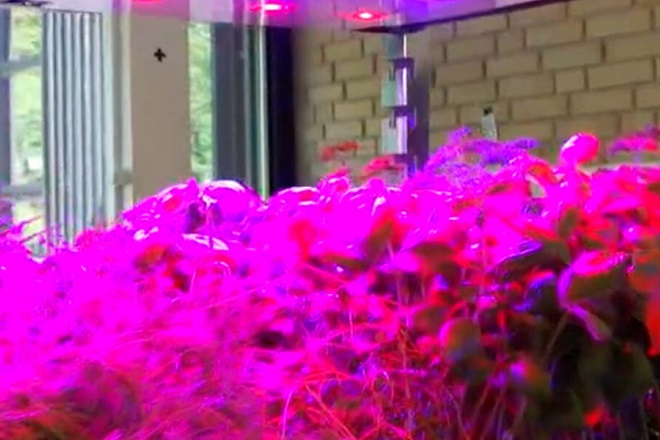HPS grow lights have had a lead in terms of popularity when it comes to vertical farming applications. Their reputation as the go-to grow lights for those who are interested in getting high yields has persisted and has made them a favorite among growers, especially those who do it on a commercial scale.
However, continuous finetuning and technological advancements have reduced the downsides of LED grow lights, while at the same time increased their advantages. As a result, if you are planning on starting a vertical farm, and are trying to decide which vertical farming lighting to use, LED grow lights might be perfect for you. Here is what you should know about the incredible benefits of opting for LED grow lights.
High efficiency
When compared to HPS lights, LEDs are miles ahead in terms of efficiency. They use less energy to generate the same light and, over time, operating an LED-lit farm tends to be more economical. Therefore, while these types of lights may cost more in terms of initial costs, over time, they offer savings that make running a vertical farm less costly.
When you consider energy cost savings, in addition to the fact that unlike HPS bulbs, LED bulbs do not need to be replaced as frequently, it is easy to see why LED lighting is fast becoming a popular grow light solution.
No need for additional installations
Once you purchase LED grow lights, you can use them right away. They don’t need any additional installations or equipment in order to function effectively. You simply take them out of their packaging, plug them into an outlet, and then hang them over your crops for instant use.
This is a simpler and convenient installation process when compared to installing HPS lights since these lights require a ballast in order to function. These external ballasts take up space, they cost money, and for beginners, having to worry about extra installations can be overwhelming. As a result, the simplified installation process of LED grow lights offers a better experience.
Less heat production
Heat can damage crops. Therefore, if your lighting solution produces heat, you have to install fans, ventilators, ducting, or other devices and fixtures that can enhance heat management.
When compared to HPS grow lights, LED lights produce less heat. This is because these bulbs are not only efficient, but also come with built-in fans and heatsinks that allow them to function without emitting as much heat. When using them, you don’t have to worry about extra expenses geared towards heat control. Furthermore, the fact that they produce less heat also makes it possible to hang them closer to your plants. As a result, if you are forced to work with limited space, they can go a long way towards helping to maximize the use of the limited growing space that is available.
Customization
LED grow lights allow for an incredible degree of customization. With these lights, you get to play with different color spectrums and other settings that are bound to affect the growth and development of your plants. Since plants respond differently to various color spectrums, this allows for experimentation that can yield interesting results. You can finetune your growing process, target different characteristics in your plants, and do other types of experiments. Therefore, if the freedom to play around with the environment with which your plants grow is something that matters to you, then going for LED grow lights should be a no-brainer.
While LED grow lights typically cost more when compared to HPS lights, they have become increasingly more affordable. And since this trend coincides with the technological advances that are making them more effective at creating the right conditions for high yields, it is no surprise that new vertical farming enthusiasts are increasingly embracing them. Therefore, if you are a beginner and are planning to take the first step towards growing your own crops, opting for a lighting solution that is constantly being improved, and which is becoming more affordable, is recommended.




